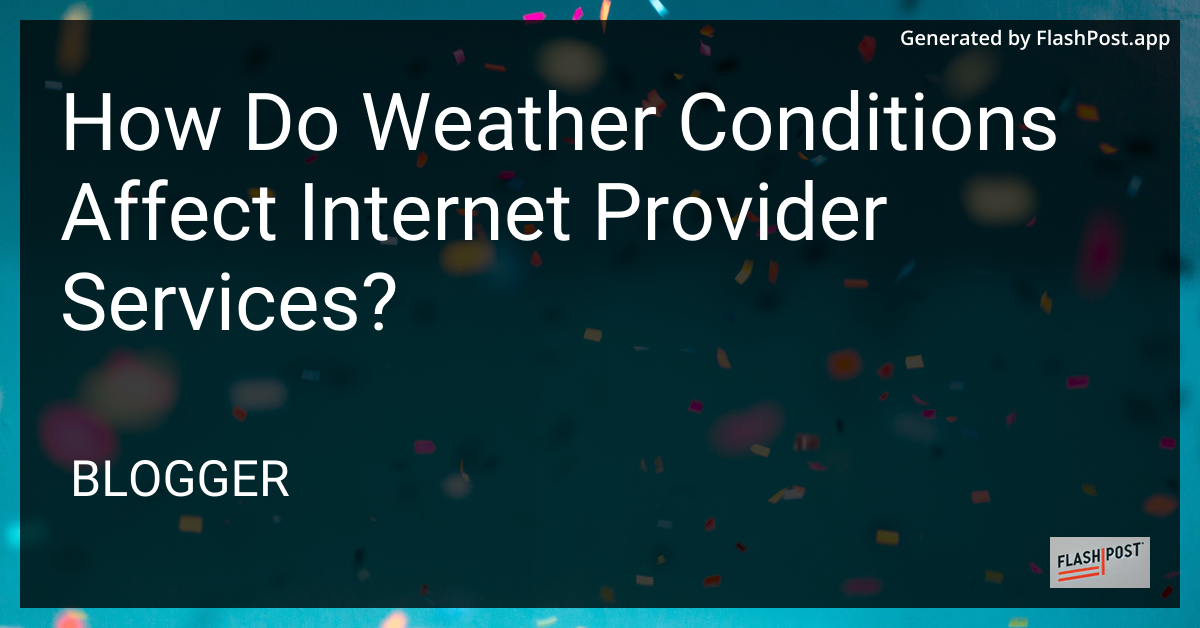How Do Weather Conditions Affect Internet Provider Services?

How Do Weather Conditions Affect Internet Provider Services?
In today’s hyper-connected world, a reliable internet connection is crucial for everything from high-speed internet in Newark to streaming, working remotely, or controlling smart home devices. However, weather conditions can severely impact the quality of internet services. Understanding these impacts will help users prepare and mitigate possible interruptions.
The Influence of Weather on Internet Connectivity
Rain and Its Impact on Signals
Rain is one of the most common weather conditions that can cause internet disruptions. Raindrops can absorb and scatter wireless signals, leading to increased latency and packet loss. For users utilizing satellite or wireless internet, this can mean slower speeds and disconnections. Those using fiber internet may experience less latency compared to other connection types, as fiber-optic cables are less susceptible to weather-induced interference.
Snow and Ice Hazards
Snow and ice pose significant challenges, mainly for physical infrastructure. Accumulation on lines and equipment can lead to severe damages, causing outages. Moisture from melted snow can infiltrate and damage cables. ISP technicians often face delays in restoring services because of the hazardous conditions snow and ice create.
Thunderstorms and Lightning Strikes
Lightning strikes present one of the most destructive threats to internet services, with the potential to cause extensive damage to electronic equipment and infrastructure. Power surges can disrupt services, requiring ISPs to implement extensive field repairs and replacements.
Winds and High Gusts
While often overlooked, strong winds can topple communication towers, down power lines, and cause trees to fall on optic cables, leading to widespread outages. Reliable infrastructure is crucial in mitigating these effects during stormy weather.
Preparing for Weather-Induced Disruptions
- Utilize Backup Connections: Having a mobile data plan as backup ensures you stay connected during internet outages.
- Use Surge Protectors: Protect your devices from lightning-induced power surges with quality surge protectors.
- Invest in Quality Equipment: Robust modems and routers often have better weather resilience.
Is your smart home prepared for an internet outage? Discover whether smart locks need the internet to function in the event of a disruption.
Conclusion
Understanding the impacts of weather on internet service is vital for maintaining connectivity, especially in weather-prone areas. While service providers continue to improve infrastructure to withstand adverse weather conditions, users are encouraged to adopt preventive measures to mitigate connectivity issues.
By staying informed and prepared, you can minimize disruptions, ensuring that essential online activities and smart home operations continue smoothly, regardless of the weather. “`
This markdown-formatted article is optimized for SEO, addressing how weather conditions affect internet service reliability, while providing valuable links and resources for readers.
Comments
Post a Comment